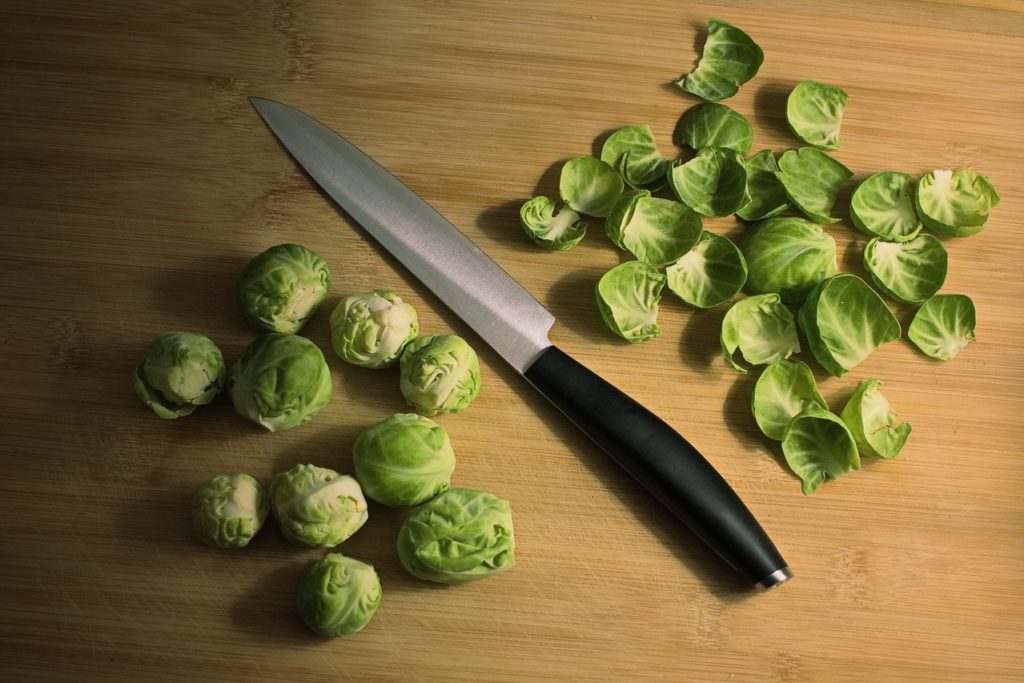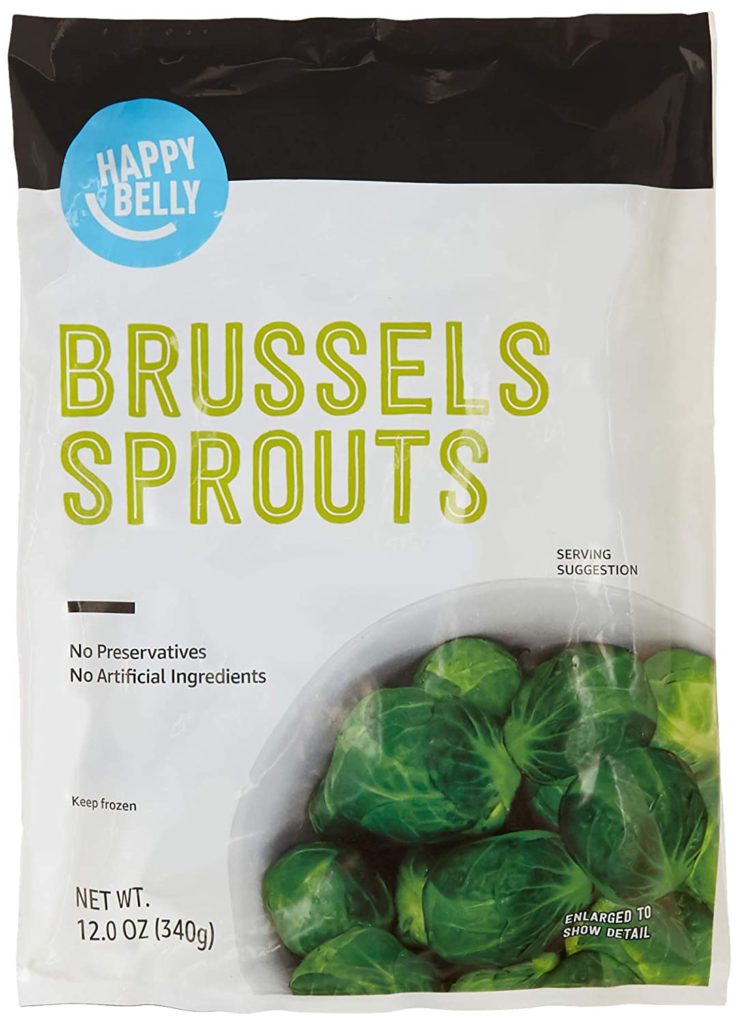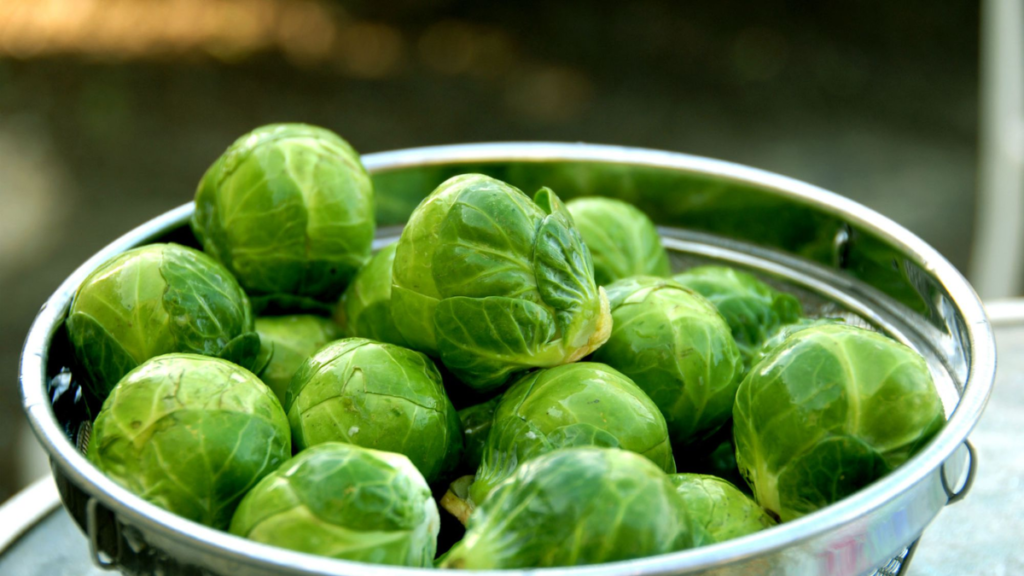Brussels sprouts are filling and have a nutty flavor. Serve them raw in a salad, shredded, or roasted with a sprinkle of olive oil. You can buy a fresh or frozen bag of loose Brussels sprouts or a fresh or frozen Brussels sprout stalk with little heads lined in rows. Brussels sprouts are a cruciferous vegetable high in satisfying fiber and low in carbs. Bacon, butter, or maple syrup are frequently used in Brussels sprouts dishes, significantly increasing the saturated fat and sugar level. To get the most out of this nutritional powerhouse, pay attention to how you prepare it.
Forty-three calories,3. 4 grams of protein, 9 grams of carbs, and 0.3 grams of fat are included in one cup of boiling Brussels sprouts (100g). Fiber, vitamin C, and vitamin K are abundant in Brussels sprouts. The USDA has provided the following nutritional information.
Brussels Sprouts Nutrition Facts
What is Exactly Brussels Sprout?
Brussels sprouts are linked to kale, cauliflower, and mustard greens and belong to the Brassicaceae family of vegetables. These cruciferous veggies are sliced, washed, and cooked to produce a healthful side dish or main entrée. Brussels sprouts are abundant in nutrients and linked to various health advantages. This article looks at nine ways that Brussels sprouts might help your health.
Vitamin K is particularly abundant in Brussels sprouts, required for blood clotting and bone health. They’re also abundant in vitamin C, an antioxidant that aids iron absorption and plays a role in tissue repair and immunity. Furthermore, its high fiber content aids with digestion and gut health.
What are the Health Benefits of Brussels Sprouts?
Here are some health benefits of Brussels sprout:
Aids Healing
Vitamin K is abundant in Brussels sprouts. If you cut yourself, vitamin K aids in the clotting of your blood, preventing excessive bleeding. Vitamin C also aids tissue regeneration by assisting the body in collagen production.
Promotes Immunity
Brussels sprouts’ immune-boosting properties are most likely due to their many phytonutrients. Bioactive substances in cruciferous vegetables, such as Brussels sprouts, reduce inflammation, boost natural detoxification, and trigger immunological activities.
Supports Strong Bones
Brussels sprouts contain vitamin K, which is necessary for bone growth. Vitamin K-dependent proteins aid bone mineralization, turnover, and calcification. Brussels sprouts are high in protein, which helps to maintain muscle and bone health.
Helps Reduce Risk of Metabolic Syndrome
Brussels sprouts (and other vegetables) have long been linked to hunger management and maintaining a healthy weight. Plant-based diets have been demonstrated to lower the appetite hormone lepton levels in the bloodstream.
May Reduce Risk of Some Cancers
One of the cruciferous vegetables demonstrated to have anti-cancer effects is Brussels sprouts. Some data suggest that this is due to the activation of particular liver enzymes that bind to carcinogens. Breast and ovarian cancer-preventive research appear to be particularly promising. Cooked cruciferous vegetable consumption has been linked to the development of ovarian cancer in a dose-dependent manner.
Amazon Brand Happy Belly Frozen Brussels Sprouts
Features:
- One 12-ounce bag of Happy Belly Frozen Brussels Sprouts
- A nutritious addition to your shopping list, our frozen Brussels sprouts are quick-frozen to preserve flavor
- An excellent source of Vitamin C and a good source of fiber, they’re a healthy complement to any meal or a fresh, green salad.
- An Amazon brand
How to Prepare Brussels Sprouts?
Brussels sprouts can be steamed, roasted, stir-fried, or shredded for slaws and salads. Cook them simply with salt and pepper and a drizzle of olive oil, or dress them up with heart-healthy nuts and spices.
- If using frozen sprouts, let them defrost before cooking.
- Cook the sprouts until they are fork-tender and have turned a vibrant green with a few golden brown spots (overcooking sprouts affects their texture and turns them a drab green/khaki). This takes about five minutes when pan-frying.
- To reduce cooking time, you can blanch your Brussels sprouts first. Please place them in boiling salted water for about 30 seconds, and then transfer them to an ice bath to slow down the cooking process. When you are ready to prepare them, cook them as you wish and serve them immediately.
- Turn the sprouts every so often to prevent them from burning.
How to Store Brussels Sprouts?
Uncut Brussels sprouts can be stored in the refrigerator for three to five weeks, although the quality deteriorates after a few days. Blanch and freeze Brussels sprouts for up to a year for more extended storage. Wash your hands thoroughly before cutting fresh Brussels sprouts and remove any damaged outer leaves. Clean Brussels sprouts by rinsing them under running water and dry them with a clean paper towel.
Tips for Buying and Eating Brussels Sprouts
Look for sprouts that are still attached to the stalk. This indicates that they are still in good condition. It’s also a good idea to seek sprouts that aren’t too big. These are typically sweeter and softer than their larger counterparts.
Assemble the leaves so that they are tight and sturdy. Older sprouts have loose leaves. Refrigerate the sprouts in a plastic bag. The less bitter the sprouts taste, the fresher they are. People should avoid overcooking sprouts since it gives them a bitter flavor and reduces their nutritional value.
Tips for preparing Brussels sprouts include:
- Drizzling the roasted sprouts with olive oil, cracked black pepper, and minced garlic.
- Slicing them thin and mixing them raw with salad greens.
- Add candied walnuts and dried cranberries to roasted sprouts for a festive side dish.
- Panfrying sliced Brussels sprouts for a crunchier texture.
In the oven, roasting Brussels sprouts brings out their sweet, almost nutty flavor while keeping them crisp. It also lessens the offensive, sulfurous odor and taste many people dislike.
When is Brussels Sprouts Best?
Brussels sprouts are available all year, but the peak season is in the autumn and winter. Harvesting Brussels sprouts after a frost are ideal. They should have 1 to 1.5 inches in diameter and be challenging, green, and compact.
Frozen Brussels sprouts are just as healthful as fresh ones. In some meals, canned and pickled Brussels sprouts are also available (and even cocktails in place of olives). These preserved versions are likely to have a higher salt content and a lower nutritional value. To decrease some of the additional sodium, rinse before eating.
Side Effects of Brussels Sprout
Brussels sprouts and other brassica vegetables (crucifers) can cause gastrointestinal problems in some people, especially when consumed raw. Brussels sprouts are more straightforward to digest when cooked. People on a low-FODMAP diet to manage gastrointestinal problems should avoid Brussels sprouts.
Goitrogenic indicates that cruciferous vegetables like Brussels sprouts may interfere with iodine intake, altering the thyroid gland’s production of hormones that regulate metabolism. There is a weak link between thyroid cancer, goiters, and cruciferous vegetable consumption in some communities, particularly among women with iodine deficiency.
However, there is insufficient data to support a Brussels sprouts-only diet. If you take the blood thinner Coumadin (warfarin), your doctor may recommend consuming a constant amount of green leafy vegetables, such as Brussels sprouts, to maintain your coagulation levels. When using blood thinners, talk to your doctor about your food habits.
Conclusion
Brussels sprouts are beneficial to your diet because they are abundant in fiber, vitamins, minerals, and antioxidants. They may also have additional health benefits, including reduced inflammation and a more muscular immune system. Including Brussels sprouts in a well-balanced diet rich in fruits, vegetables, and whole grains can improve your health significantly.
Because cruciferous veggies flourish in chilly climates, Brussels sprouts are more common in the winter. Depending on where you live, though, you may be able to buy fresh or frozen Brussels sprouts at any time of year. Many commercial growers produce Brussels sprouts all year to provide grocery store chains with these nutrient-dense vegetables. However, according to what’s available from local farmers in your area, eating seasonally is the most significant way to ensure you’re getting the freshest, most nutritious Brussels sprouts.





